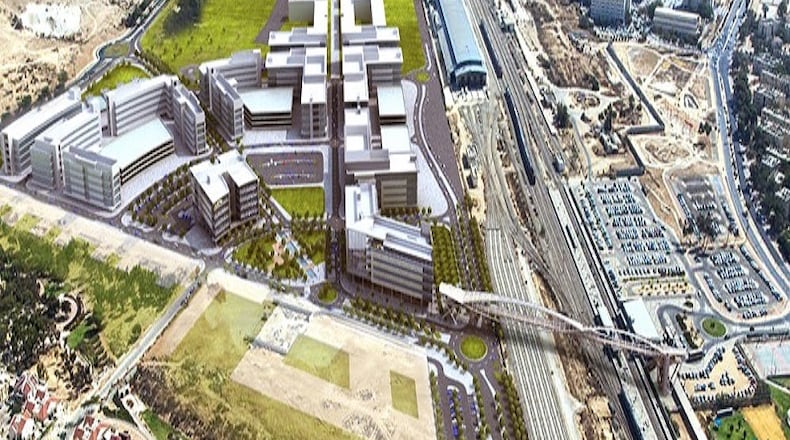BEERSHEBA, Israel — Emerging from the desert expanse in Israel’s arid south is the tech oasis of Beersheba, a university center and research hub that has quickly become the nation’s cybercapital.
The trade delegation led by Gov. Brian Kemp traveled here Tuesday to explore how government officials transformed this Negev Desert boomtown into a cutting-edge cybersecurity center — and how Georgia could enhance its own burgeoning cyberindustry.
Then-Gov. Nathan Deal in 2017 created a state-owned facility to combat cyberwarfare near the U.S. Army’s Cyber Command in Augusta. The $100 million center on the Savannah River became the largest U.S. investment in a cybersecurity facility by a state government.
As state officials try to recruit high-paying cybersecurity jobs to Georgia, they aim to learn how Israel made the desert bloom with Fortune 500 companies, military intelligence officers and government researchers centered on a sand-encrusted Beersheba.
Kemp, state House Speaker Jon Burns and Senate GOP leader John Kennedy peppered officials from Ben-Gurion University and other Israeli experts with questions as they outlined public-private partnerships that have helped jump-start the industry.
And they marveled at the heavily fortified Israeli Cyber Emergency Response Team, a cybersecurity complex that seems lifted from a blockbuster movie. Aides work around the clock to track hundreds of cyberattack attempts daily as a digital map displays an unceasing stream of threats emanating from across the globe.
Beersheba didn’t become a magnet for the industry by accident. Government leaders decided to turn the city into the front line of the world’s cyberwars about a decade ago by offering generous subsidies and relocated tens of thousands of military analysts from the megacity of Tel Aviv.
Soon, private-sector firms and government agencies followed, creating a magnet for research. Now an anchor of the Israeli economy, the cyberindustry raised more than $8 billion in capital in 2021. Many of the startups that helped give Israel the “startup nation” moniker are in the cybersecurity industry.
At a sleek Ben-Gurion University lab, officials showed Kemp and other delegation members haunting examples of how easily a computer or smartphone can be hacked — even if they’re not connected to the Internet — and the innovative ways that Israeli firms are working to detect and prevent threats.
And they warned of a new wave of artificial intelligence attacks that can be deployed against governments, businesses or individuals that could wreck an economy, stir up dissension or compromise political leaders.
As one Israeli senior official put it to Kemp, “If you want to be able to defend cyberattacks in 10 years, you need to start preparing today.”
Though Israel isn’t a major trading partner with Georgia, both governments hope to capitalize on the high-growth cybersecurity field. Business leaders hope the visit can jump-start partnerships between Israel and Georgia in the burgeoning industry.
Aaron Kaplowitz of the United States-Israel Business Alliance noted a recent five-day joint operation between Israeli cybersecurity officials and their American counterparts at Fort Gordon in Augusta.
“Joint exercises such as this one build stronger defense and intelligence relationships, and they also will inevitably create economic development opportunities in the near and distant future,” Kaplowitz said. “This means more revenue, more jobs and safer communities.”
Georgia is far from the only U.S. state engaged in the high-stakes competition for cyberjobs. Other states have stepped up their efforts to lure cybersecurity business, and Georgia’s universities are struggling to keep pace with demand for the skilled workers that the firms seek.
State officials are developing plans, and potential legislation, to make Georgia more attractive to the industry, though it’s not immediately clear what that could look like. Kemp said it was a tantalizing chance to forge a deeper relationship between the two countries.
“There’s certainly a lot of opportunities to grow trade and investment,” Kemp said. “And that’s good for both the nation of Israel and for the state of Georgia.”
About the Author
Keep Reading
The Latest
Featured







